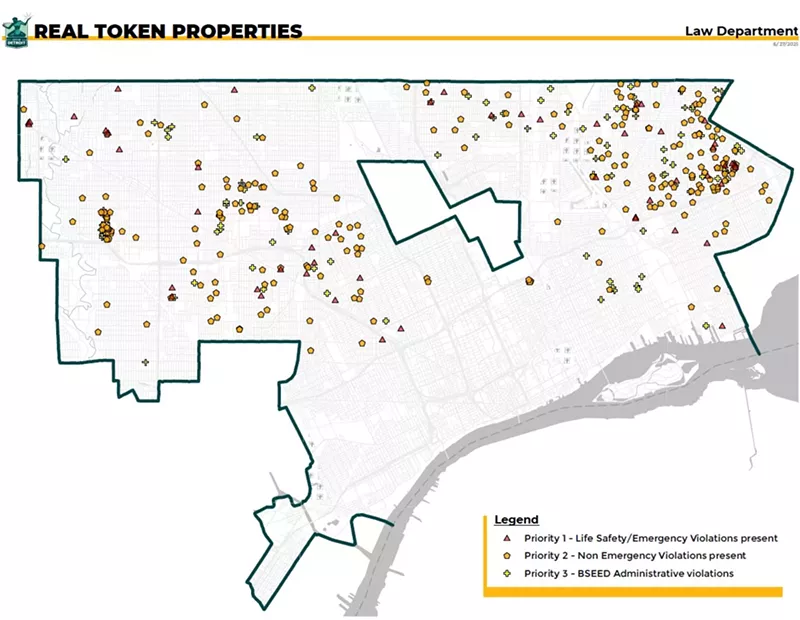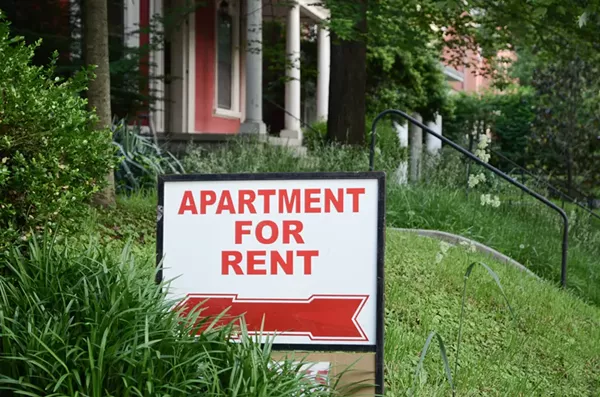
City of Detroit
A list of all properties connected to Real Token, a blockchain-based real estate company.
A Wayne County judge has barred a blockchain-based real estate company and its affiliates from collecting rent or evicting residents at hundreds of their distressed rental homes in Detroit, unless the properties are brought up to code and receive certificates of compliance from the city.
The court order, signed Tuesday by Wayne County Circuit Court Judge Annette Berry, marks a significant development in a lawsuit filed earlier this month by the city of Detroit against Florida-based Real Token, its founders Remy and Jean-Marc Jacobson, and more than 165 shell companies tied to their blockchain business. The suit alleges more than 400 of their homes have received public nuisance violations for a range of problems, including unsafe living conditions, code violations, and neglect.
Under the judge’s temporary restraining order, Real Token is prohibited from collecting rent on any of its Detroit properties unless the home has been repaired and certified as compliant with city codes. Instead, rent payments must be deposited into escrow accounts, which the landlord can only access to make repairs needed to obtain a certificate of compliance. The city will help tenants set up the accounts.
Without a valid certificate, Real Token and its shell companies are prevented from evicting residents, as long as rent is placed in escrow.
The company must grant full access to city officials to conduct inspections and pursue compliance on the properties, the judge ruled.
“This is a major win that should start to bring swift relief to residents living in some pretty terrible conditions,” Detroit Corporation Counsel Conrad Mallett said in a statement Wednesday. “This also should send a very clear message to other large-scale owners of blighted rental properties in Detroit because we are not stopping with Real Token.”
The lawsuit accuses Real Token, which sells fractional ownership of rental homes through blockchain tokens, of using a complex web of limited liability companies to shield itself from accountability while profiting from Detroit renters. The city said the company failed to provide tenants with basic necessities like heat, structural integrity, and utility safety.
“This is the largest nuisance abatement case in our history,” Mallett said. “These defendants have profited from our communities while ignoring their most basic legal obligations as landlords and property owners. Our neighborhoods are not investment portfolios — they are homes for Detroit residents.”
(Except for the headline, this story has not been edited by PostX News and is published from a syndicated feed.)

